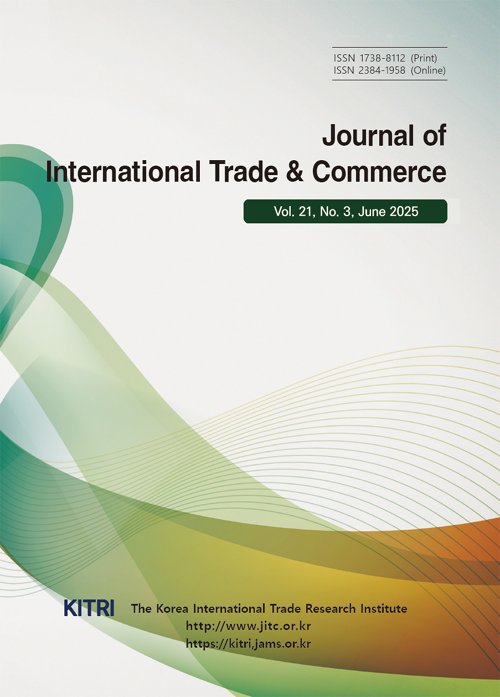- 영문명
- SHAP-Based Analysis of Trade Forecasting Accuracy and Variable Influence: The Case of Environmental Goods
- 발행기관
- 한국무역연구원
- 저자명
- 박완(Wan Park) 권오진(Oh-Jin Kwon)
- 간행물 정보
- 『무역연구』제21권 제3호, 267~287쪽, 전체 21쪽
- 주제분류
- 경제경영 > 무역학
- 파일형태
- 발행일자
- 2025.06.30

국문 초록
Purpose - This study aims to improve the predictive accuracy of international trade in environmental goods by applying machine learning models, and to enhance model interpretability through SHAP (SHapley Additive exPlanations) analysis.
Design/Methodology/Approach - The research utilizes trade data for 53 HS-coded environmental goods across 44 major economies from 2001 to 2020. Various machine learning algorithms, including Random Forest, Extra Trees, LightGBM, and ensemble models, are evaluated using the PyCaret framework. The study compares prediction performance against traditional gravity models, and applies SHAP values to identify key factors influencing model outputs.
Findings - Stacked ensemble models significantly outperform traditional gravity models in forecasting trade flows, with notable gains in predictive accuracy (lower MSE and higher R²). SHAP analysis reveals that GDP, geographic distance, and shared language are among the most influential variables, with domain-specific variations across product categories.
Research Implications - The integration of SHAP-based interpretability with machine learning models offers a powerful tool for trade policy and environmental strategy. It enables policymakers and trade analysts to understand not just what drives trade performance, but how these factors interact non-linearly—opening new directions for data-driven international trade negotiations and environmental policy design.
영문 초록
목차
Ⅰ. 서론
Ⅱ. 중력모형 대한 이론적 배경
Ⅲ. 연구방법론
Ⅳ. 분석 결과
Ⅴ. 결론
References
해당간행물 수록 논문
참고문헌
최근 이용한 논문
교보eBook 첫 방문을 환영 합니다!

신규가입 혜택 지급이 완료 되었습니다.
바로 사용 가능한 교보e캐시 1,000원 (유효기간 7일)
지금 바로 교보eBook의 다양한 콘텐츠를 이용해 보세요!


